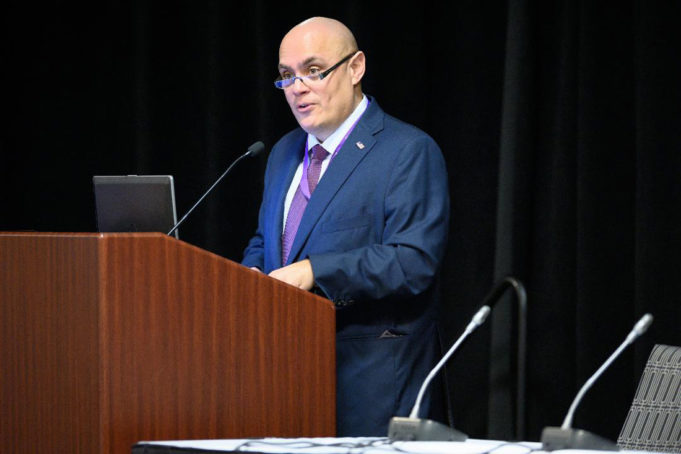Attempts to reform the Fort Worth police department are nothing new. The too-frequent assault and killing of unarmed Black men and women by white police officers led to the 2017 formation of the Task Force on Race and Culture, which finalized its recommendations in December 2018, and the recent establishment of two police monitors now tasked with reviewing complaints against police.
In 2014, the Fort Worth police department participated in a pilot program for the Department of Justice’s National Initiative for Building Community Trust and Justice with the aim of enhancing procedural justice, reducing implicit bias, and encouraging reconciliation processes, among other goals.
The 2019 killing of Atatiana Jefferson, a Black woman, in her own home by a white male officer prompted the most recent reform effort — a comprehensive review of Fort Worth police department procedures and tactics. The Fort Worth Police Department Expert Review Panel began its work earlier this year by collecting first-hand accounts of police interactions from Fort Worthians. The four-person panel spoke extensively with officers at all levels of the department.
Last week, the panel released its preliminary findings and recommendations. This October, the panel plans to present its final recommendation to Fort Worth City Council. At that point, it will be up to Mayor Betsy Price and councilmembers to implement specific policies that address the findings. Panel co-chair Dr. Alex Del Carmen, a criminologist with decades of experience in training police, spoke to the Weekly about the findings.
How would you summarize the citizen complaints you documented earlier this year?
There were common themes. One concern was about the use of force by police officers. The death of Atatiana made an impact in the community. I think that and other [shooting of unarmed Black men and women by white police officers] had a resounding effect on community members. They were concerned about the frequency of people of color being targeted by police stops. They wanted to identify if there were patterns and practices related to that. Many people felt the relationship between the community and police had been broken for years.
Was there anything about the Fort Worth police department’s policies and practices that particularly stuck out?
I have been involved in police research for 22 years. I don’t think there is a point of departure [in Fort Worth’s policing habits] that I would say is unusual. What stood out as far as the highlights of our findings was the de-escalation component. There was a disconnect between the policy and the practice. The fact that they only have a limited number of officers who are responsible for crisis intervention was significant.
Fort Worth police cadets are given 51 hours of instruction on the proper uses of force. Of that time, only eight hours are spent on de-escalation. Are those numbers concerning?
I taught at police academies for 22 years. I can tell you it isn’t the number of hours that matters as much as what they are doing with that training. Once the police are sent out and they are doing their job, they need to adhere to the policy. There needs to be accountability as well. I’m a big fan of good training, but the department needs to make sure training is carried out once officers are deployed. We saw quite a bit of calls where officers used foul language. We understand officers are working with issues that are emotional. We felt that, and science shows, any time officers use foul language, it escalates the response from the other person. For us, it is not only an issue of politeness: It is a potential cause of escalation during police encounters.
Your preliminary report found that the Fort Worth police department lacks functioning crisis intervention services. What is the danger in this?
There are cases that police respond to that involve people who are mentally ill and need a critical assessment. They need someone to take care of them. We feel that in a city the size of Fort Worth, we have a limited number of personnel who are Crisis Intervention Team-trained. If you add to that the fact that they were only available from 9 to 5, those services may not be available when they are needed by the community. Those [crisis intervention members] should have as a resource a social worker or psychologist they can bring when necessary. Trained professionals will know how to talk to [someone having a mental health crisis]. Trained professionals will know what sorts of symptoms are being manifested and what type of medical resources are needed. That person may tell the officer, “We don’t need to handcuff them. We need to take them to [John Peter Smith Hospital], so someone can take care of them.” We also need to give 911 dispatchers the option of redirecting calls from police [to mental health professionals] as needed.
The Fort Worth police department does not have an Early Intervention System (EIS) in place to identify potential issues with officer performance or conduct. What are the consequences of this?
The EIS is used to help police officers, to identify officers who may have underlying issues that are affecting their performance. If an officer is late to work or is showing signs of depression, these are indicators that police compile. All this data is then fed into the system. The idea is to help that officer before that individual gets into a situation. It is mostly used as a preventative measure and not for punishment. In Fort Worth, the police have [this system] in theory, but it has yet to be implemented.
Fort Worth has been through reform efforts before. Should Fort Worthians be optimistic that this effort will lead to the types of changes that major cities across the United States are asking for?
Some of [the panel members] are residents of the area. I’ve lived in the Metroplex for 22 years. This is personal to us. The police department is at a place where they want to change. They want to do good. They have given us access to everything that was asked. We met many officers with goodwill who are interested in helping. I think the Fort Worth police department finds itself at a crossroads. I am very optimistic about the attitude they have. I’m not describing a perfect scenario, but I am optimistic. The people of Fort Worth should be optimistic too. l
The full preliminary findings can be read at Fortworthtexas.gov/FWPDReview.













Why do you capitalize “Black” but not “White”. Must be a racist.